blog
Welcome to my blog. Thanks for being here.
I like to write a lot. Mostly about powerlifting, strength training, body image + women in sport. They’re kinda my things.
If you ever have questions or want to learn more, please reach out. I would love to hear from you.
Billie x

Training & Long Term Travel
I received a message on Instagram the other day about navigating training and travel — specifically, navigating less predictable training set ups and the psychology around the fear of losing gains. Yes yes, hugely luxe problems. But certainly problems that can plague us when we have passions that are largely at odds.
I love training, I love routine, I love consistency, I love being in control. But I also like everything that opposes that — having no idea what I’m doing tomorrow, what hour I’ll get in tonight (tomorrow morning?), where I’ll sleep tonight. I’m willing to trade off on gains in order to enjoy this side of my personality, but certainly I am constantly engaged with ongoing problem solving to give me the best possible enjoyment of both of my loves.
In this article I talk about both the practical and the emotional aspects of training and long-term travel. I’ll offer personal experience and practical advice on how to best manage training while also letting your hair down af.

Average Days Happen On Average.
Nerves and anxiety on competition day are entirely normal. Wanting to PB your total on the platform — also entirely normal. While heading in to a competition with big goals and dreams and plenty of nerves to accompany those are almost entirely universal experiences, our ability manage and channel those emotions vary a stack. It can be the difference between a stellar performance and shitting the bed.
I talk about competition day psychology with my team a lot. And while each lifter experiences competition day differently and comes to sporting competition with their own lived experiences, many of the challenges they experience are much the same. Many I have lived before too.

Why I Compete in Powerlifting.
This year will be my eighth year competing in powerlifting. Eight years of this niche sport. I’m not elite, I don’t get paid, I compete entirely recreationally. And still, I see so much value in pouring a stack of my time, effort and energy in to participating. I derive a huge amount of enjoyment and fulfilment from powerlifting, which has only increased over my years of involvement.
So here are four reasons why I still compete in powerlifting after all these years (and admittedly after numerous claims of retirement).

Should I Cut Weight For My First Competition?
Anytime anyone considers their first powerlifting competition one of the questions they are most plagued with early on is which weight class to enter. At a local level (which is what your first competition will be), the weight class you register for literally does not matter. IE, if I register for the 67.5kg weight class, but on the day I weigh in at 68.0kg, it bears no implication. I will simply be entered in to the weight class above (75kg).
But Billie, won’t you be less competitive in that weight class? Well yeah, but also, not important. Or at least, this is much less important than a stack of other factors that I consider in the context of a first competition.
So should I cut weight for my first competition? My answer to this question will almost always be no. Here’s why.

What I’ve Learned and How I’ve Grown in 10 Years in the Fitness Industry
I completed my fitness certs in 2012. That’s 10 years ago. I remember back then reading the Fitness First personal trainer bios: “10 years industry experience” and thinking “man this guy is a veteran”. lol.
My career has evolved a lot in that time. As I’ve chased curiosities and interests; my work has reflected that. I’ve learned a lot in my time in fitness and I feel my biggest challenges and lessons are only coming now.
10 years in, I still have a very fulfilling career in a pretty brutal industry, I am still learning and I am still having fun. I think there’s something in that worth sharing. So here goes — lessons I’ve learned and lessons I’m still learning in my 10 years in the fitness industry.

Persevering in Powerlifting & Navigating Low Motivation
I’ll be the first person to tell you that my love for lifting has been tested at times; that showing up has gotten hard, many times over. But even so, I have consistently resistance trained for over ten years now. A few breaks for travel, but otherwise 3-4 days per week for the last ten years.
I’ve not always trained extremely hard, I’ve not always trained for a heap of hours at a time, and lifting has not always been overly salient in my life, but I’ve always showed up. And because of that fact I have continued to improve — improve my skill, improve my strength and improve my toughness in persevering through those harder periods.
There are a few tools, strategies and trains of thought that I’ve adopted over the years to stop me from losing my mind when I feel like I’m falling out of love with lifting. Right now I’m feeling pretty disenchanted with training. That’s been the case for a few months now. But never do I catastrophise and think that my powerlifting career is coming to an end; and never do I throw in the towel and stop training altogether. Here is what helps me with that.
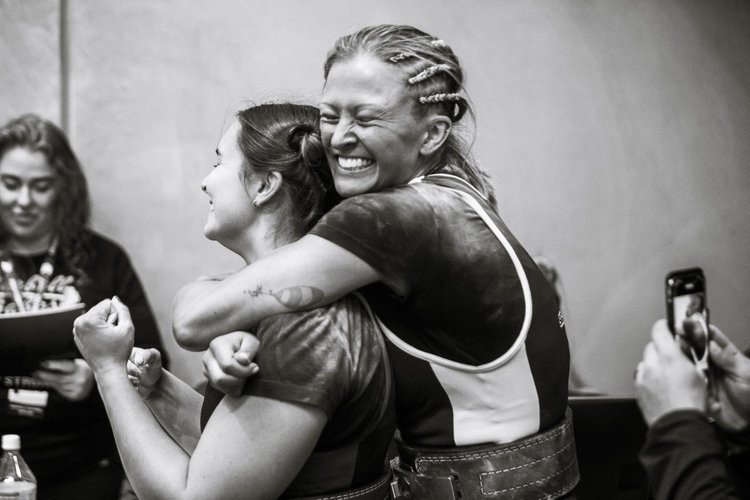
Intangible gains - reflections from and about my more resilient brain.
I am an anxious person. Dreading things I enjoy because I expect the worst case scenario to play out is a special skill of mine. Getting in my own head to derail my performance on important days, also something I’m really good at.
I’ve gotten a heap better at this though which I am extremely proud of. I’ve never been more excited for a comp as I was for this one, and every time I compete I have more fun than the time before. That has not been by accident. I’ve worked really hard on this.
So, here’s some lessons that I’ve learned to manage my brain that I think are really valuable.
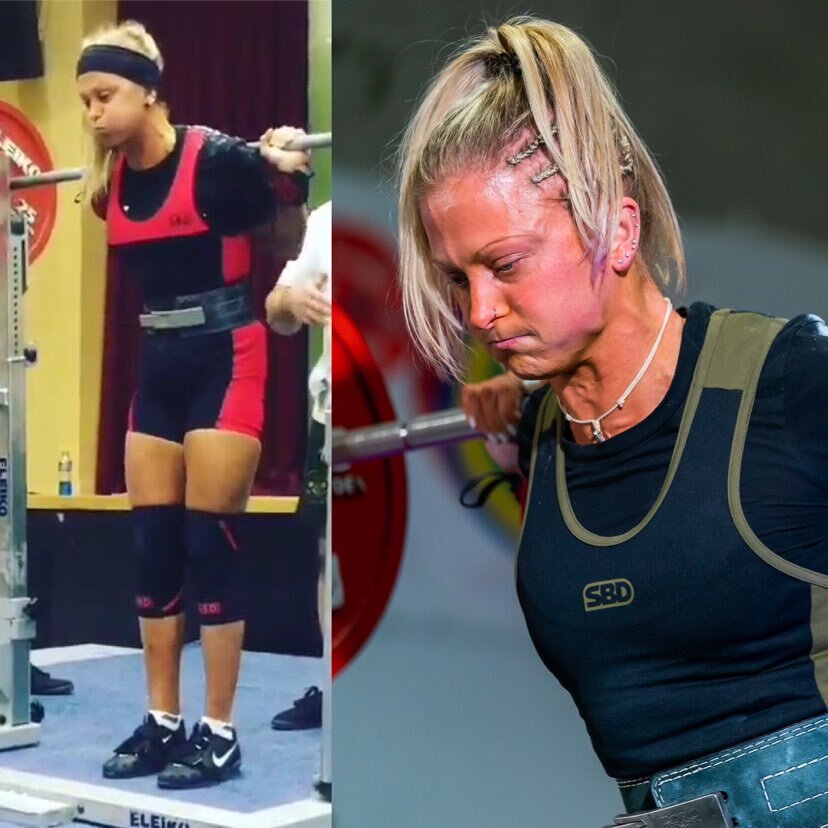
It took me five years to add 2.5kg to my total. Here’s what I learned.
In 2015, I put up a 347.5kg total. It was my first year of powerlifting and my second competition. Five years later in 2020, I finally registered a new PB total of 350kg. There were significant ups and downs across that five year period: great training blocks, horrendous ones, weight gain and loss, success in some lifts, major regression in others, injury and recovery, breaks from competition and breaks from structured powerlifting training altogether.
I am in hindsight appreciative of this experience: I’ve matured considerably as a lifter and just in general; powerlifting has taken up a really nice spot in my life among numerous other activities and pursuits that are meaningful to me; I’m a more compassionate coach and training partner. I’ve learned a number of lessons that I believe are immensely valuable for anyone experiencing their own seemingly endless training plateau.
So, on top of that whopping 2.5kg that I slapped on my total, here are some valuable insights I gained over this recent five year period.
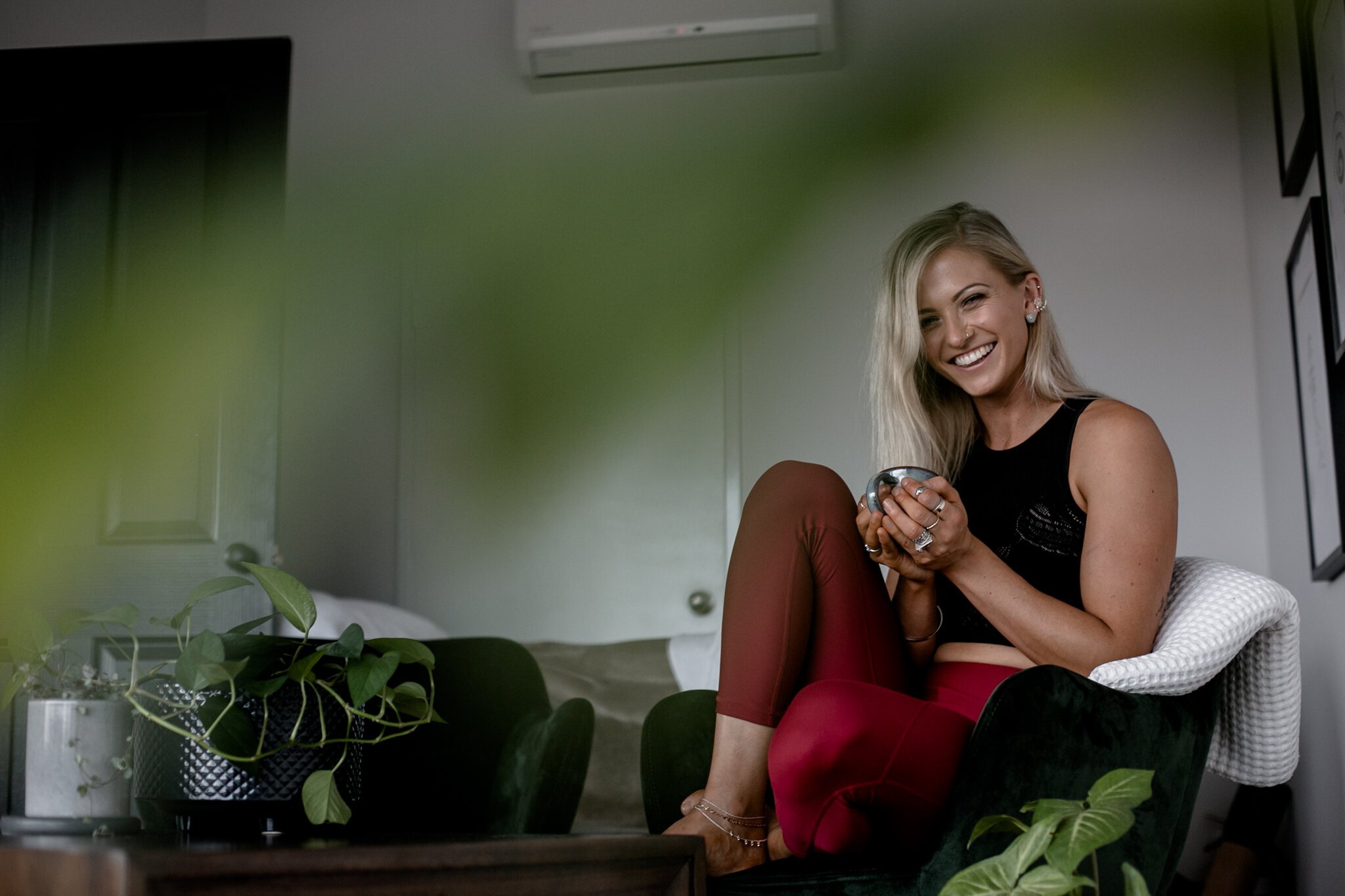
Powerlifting, Plant-Based Diets & Macro-Tracking: Tips for Women Who Want to Lift Heavy & Eat Less Meat!
I was recently invited for a virtual interview with The Strength Dietitian, Valentina Duong — someone whom I admire immensely. We spoke about (as the name suggests) powerlifting, plant-based diets and macro tracking. She and I share many similar views on the role of nutrition in strength sports, recreational sports and maintaining a high quality of life. With her thought provoking questions, I really enjoyed this interview.
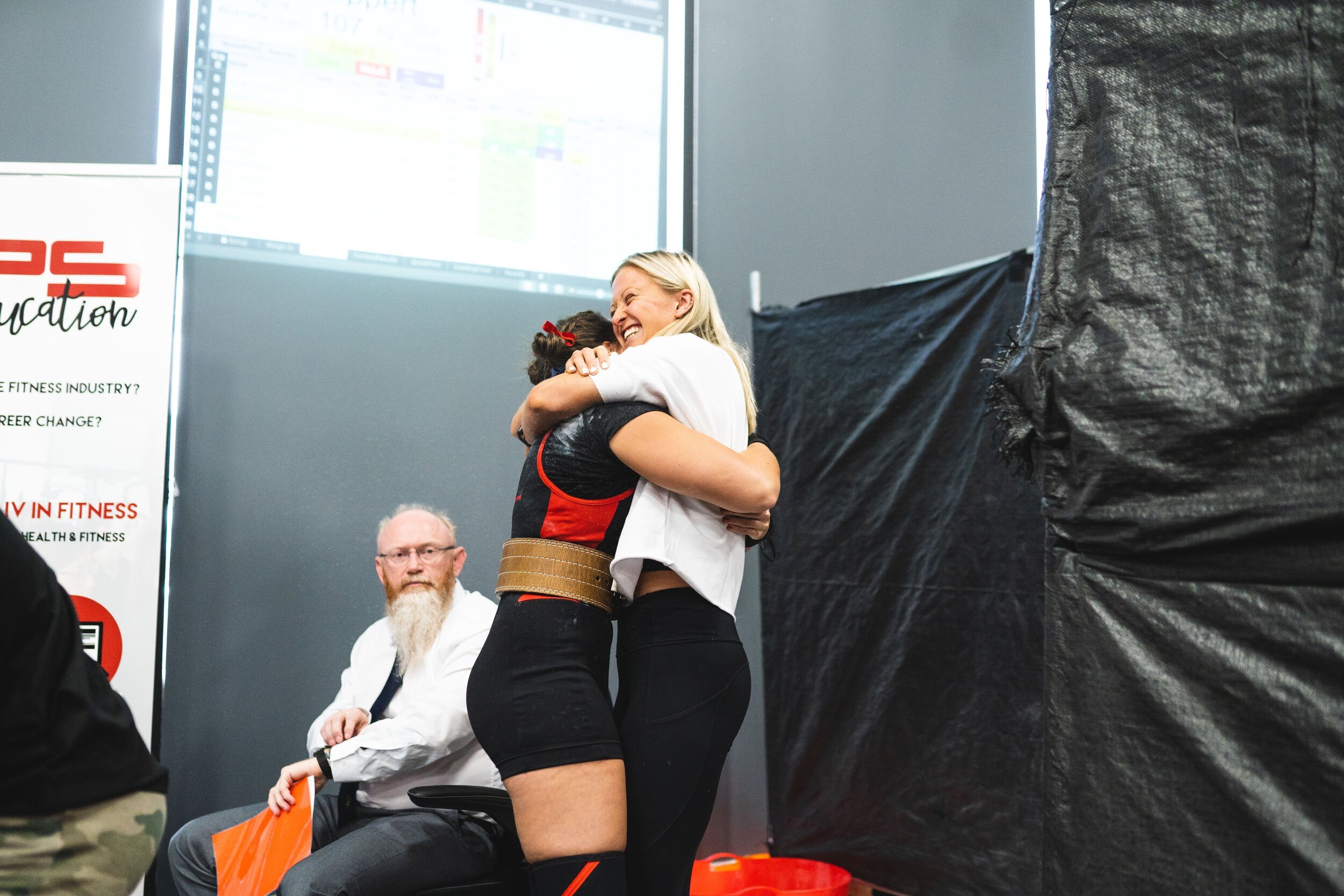
How To Get The Most Out Of A Coach
The relationship between coach and client can be a pretty damn special one. I’m fortunate to work with some damn wonderful people among my team with whom I have really beautiful connections and achieve some pretty awesome outcomes. I also have a wonderful relationship with my own coach. He is a great friend to me and has and continues to play a huge role in shuttling me towards my own goals. But none of this has happened by accident or without significant effort from both parties. It takes a lot from both coach and client to move towards the desired outcome in a way that is enjoyable and at a rate that is deemed acceptable.
Which raises the question — as a client, how do you get the most out of a coach?
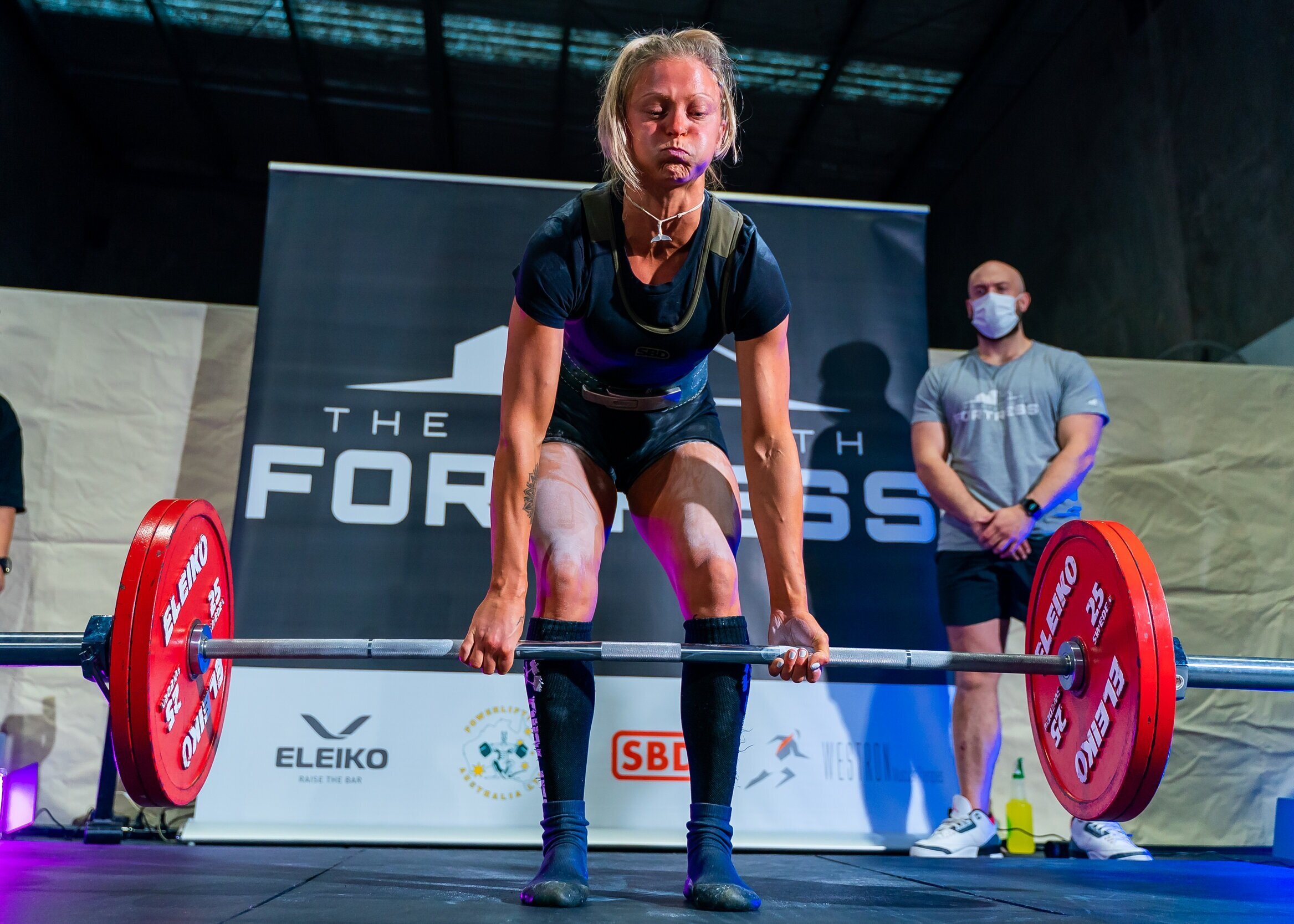
Post-Competition Reflection
Despite that fact that I compete in powerlifting very recreationally, I do take my preparation and performance quite (very) seriously. I really love powerlifting as an avenue of self improvement. While the objective goal is more weight on the bar, to me the more meaningful goal is becoming a better person in the pursuit of that — and that comes from self reflection and holding myself to a consistently high standard.
After each comp, I send my coach a debrief on everything I thought I did well, could do better, what went well, ideas I have, things I want to do for fun, etc. It’s positive for me personally in getting some closure on the day and identifying areas and means for improvement, but it also gives coachy guidance too. He knows where I want to go, what I’m willing and not willing to do to get there and demonstrates that I want to collaborate with him.
In this article I share here how I personally reflect on my competition preparation and performance in the hope that it may prompt some thought in you on how to get more out of your training and competition experiences.

Quit Majoring in the Minors. What Actually Matters for Strength Development?
If there is one thing that gym-goers do really well, it’s major in the minors. You know, have a $500 supplement stack but squat high. Have carbs and protein within 15 minutes of every training session but eat nothing more than a tall latte and a sushi roll outside of that. Wear blue light glasses before bed every night because #recovery but also take a week off training every month for the same reason.
So much time, money and effort is wasted on misguided training and nutrition interventions.
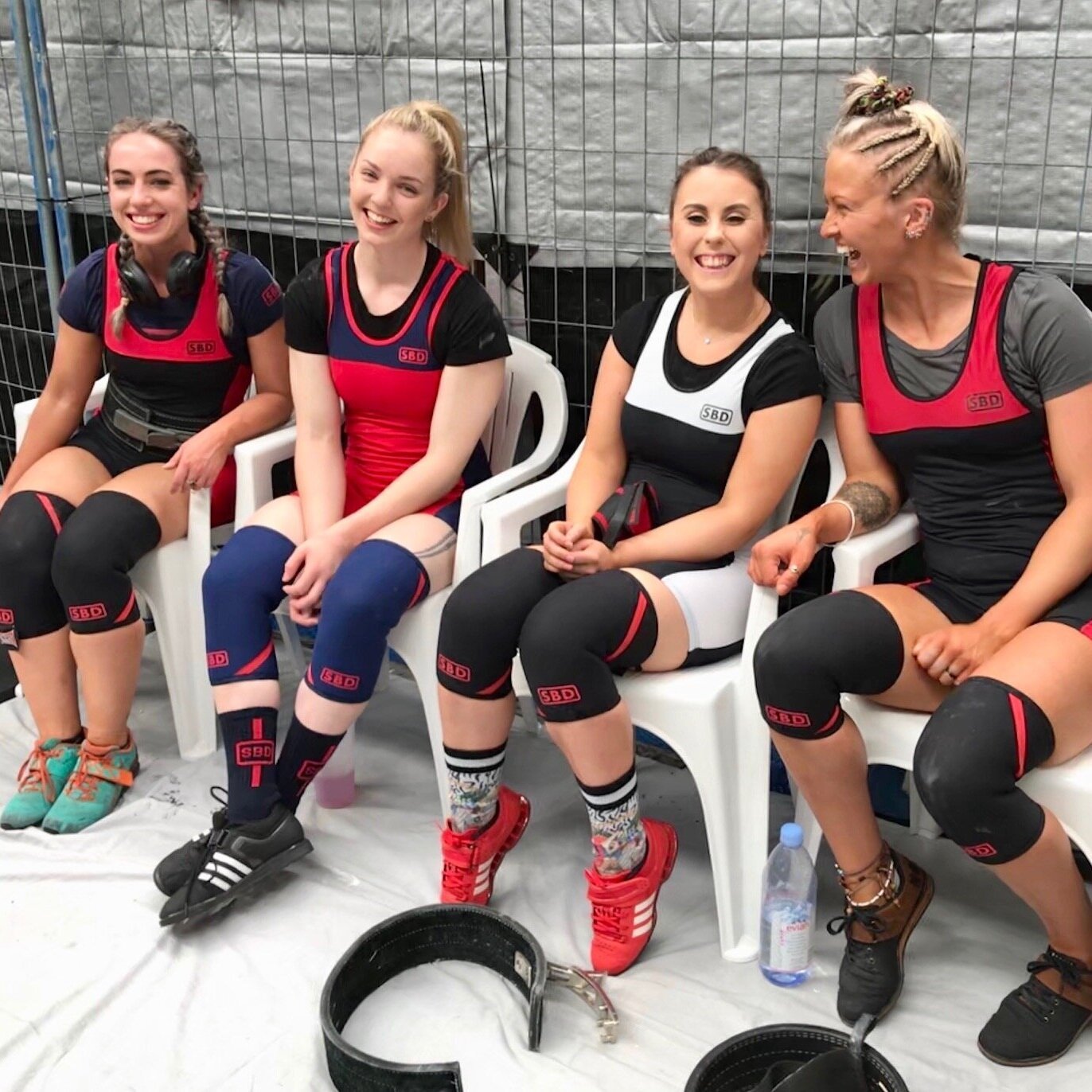
Personal Powerlifting Equipment
Buying equipment/apparel for a new hobby can be a little daunting. Like, you don’t want to be that guy with all the gear and no idea. But also, should you have it? Would you be safer? Would you lift better? Would lifting be more enjoyable for you? More comfortable? Would you be stronger? Would you train better? Is your coach going to think you’re a moron for asking? (lol, no.)
I’ve put this article together as a little crash course in individual equipment you might like to use in powerlifting training. I talk about heeled shoes, belts, knee sleeves, wrist wraps, competition suits etc, covering what they do, why you might wear them and how you know if you’re ready for them.

So You're Thinking of Entering a Powerlifting Competition?
I never set out to coach powerlifting. I just love training with a barbell and I share that with my team. But naturally, training in a powerlifting gym, watching powerlifting competitions and generally being surrounded by the sport, you start to get curious. And now, a number of my team are getting ready for the competition debuts.
They have a lot of questions though. A powerlifting competition is not the same as maxing out in the gym. Powerlifting is a sport and has rules that govern it. What are the rules? What do I need to wear? How much does it cost? What does the belt do? What’s with the suit?
This is not a comprehensive guide, nor is it designed to replace the role of your coach in educating you on how to prepare and what to expect. Rather, my hope is that this article will give you a little more insight in to how competitions run, and some things to consider in preparation.

Training on Holiday
Whether or not to train on holidays is a decision that seems to plague a lot of people.
I personally have been on holidays where I’ve trained everyday. I’ve been on holidays where I’ve hiked everyday. I’ve been on holidays where everyone else has gone to the gym and I’ve been like '“yeah nah I’m not doing that.” I’ve been on holidays where I’ve done a bunch of incidental activity just exploring — and all options have been amazing because they have considered my unique circumstances at the time.
There are no hard and fast rules for training and eating while travelling. As with many questions regarding health and fitness, the answer to “should I train on holiday” is “it depends.” But to make that answer a little more useful for you, it largely depends on the factors that I explore in this article [among others] that I encourage you to unpack next time you find yourself asking the same question.
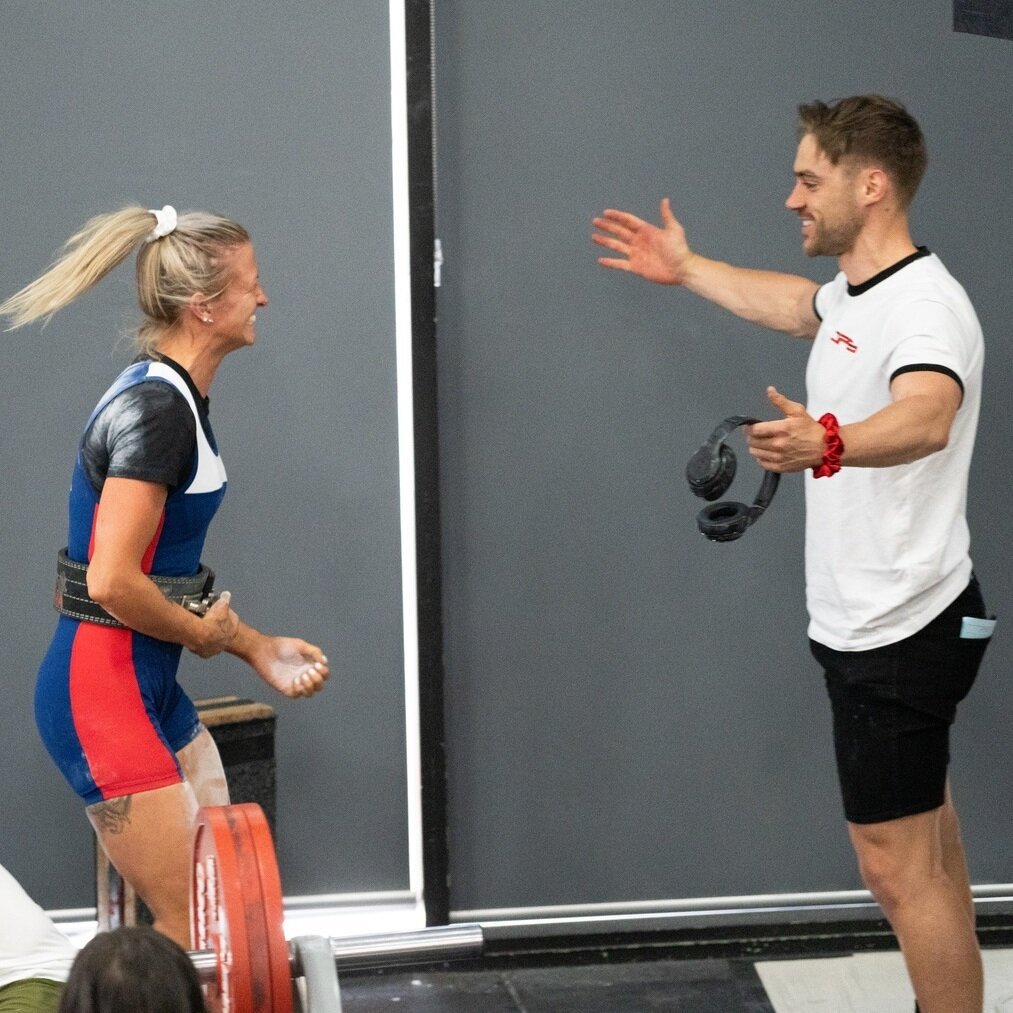
Powerlifting - More Than Just Lifting Heavy Things?
Last Sunday, I competed in a powerlifting competition. It was the first time in a long time [over two years] for me. A whole bunch of my team came to watch which was incredibly beautiful. It was the first competition they had been to. When they rolled in the door for training on Monday morning, their energy was absolutely phenomenal. They had so many questions about the rules, the timer, why the lifters did certain things and so on. They were amped. But one comment really stuck with me.
“What a world! The competition really made me feel like I’m part of something. I can see my training becoming more of a hobby now.”
Fucking YES! That is exactly why I do it and exactly why I’m elated by the opportunity to rope everyone in that I can.
Training (or rather, exercising) in our culture is so often just seen as a reluctant but necessary means for weight loss or maintenance and oddly to a lesser extent, health. And with that comes the comments of “why are you here [at the gym]? You’re already in great shape” and associated dare I say, ignorance. But what if training was so much more than that — a means of self development, a personal challenge, a hobby, a place for social connection and self expression.
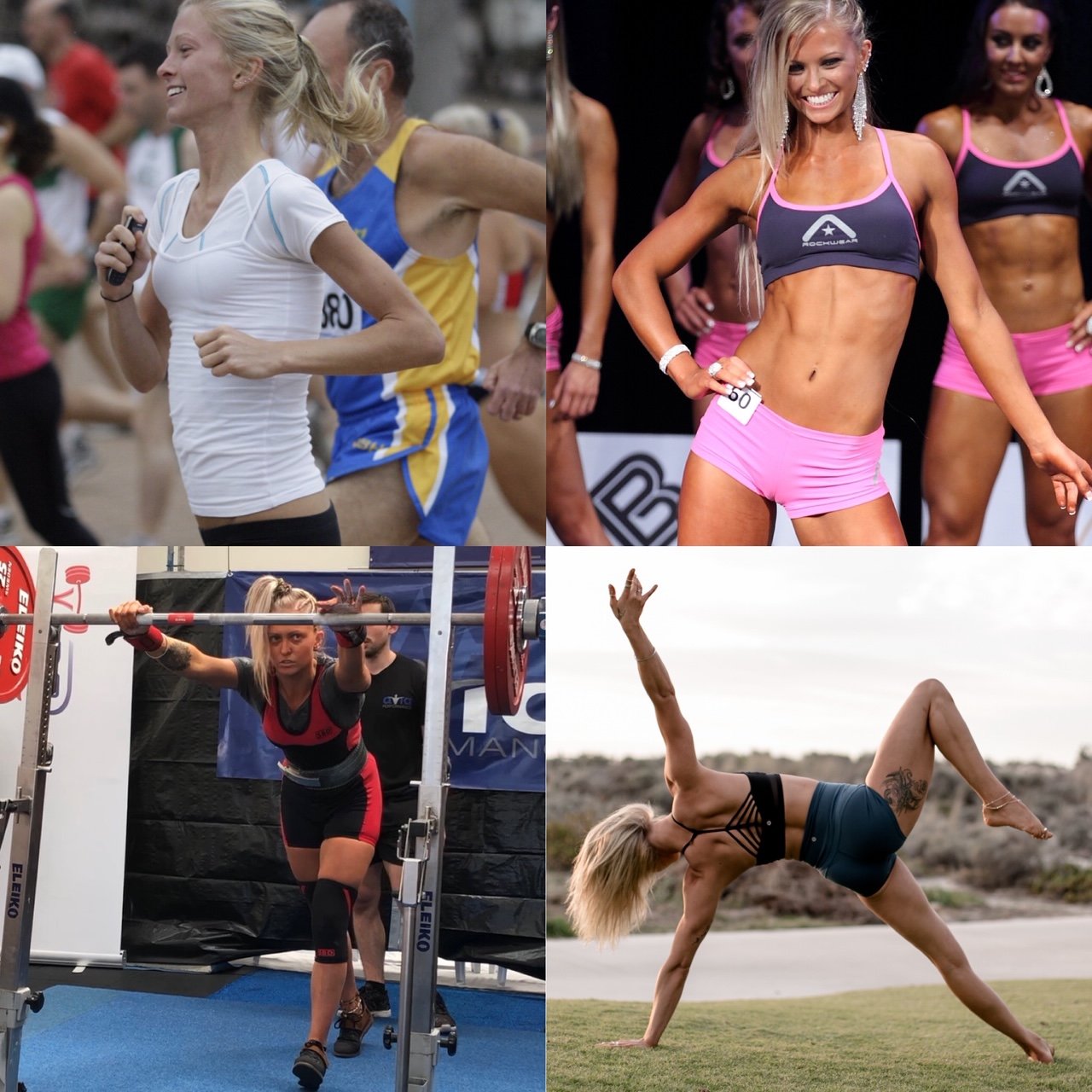
Navigating Health and Body Image - My Story.
I’ve shared my story and battles with my body image and body weight in varying depths on varying different platforms, but I’ve never dived super deep in to the nitty gritty of each stage of the journey. I feel called to share the finest details because all too often I see nutrition and exercise viewed in isolation from all other elements of an individual’s life. Your relationships, work, hobbies, education, family, sleep, sex life - all of these play a factor in determining your behaviours around food and exercise and the perceptions you hold of yourself. I hope that by breaking down every little bit of this story, you can come to recognise how so many things interplayed in my journey and perhaps help you recognise anything in your life that may be indirectly adversely affecting your physical or mental health, that you may not have otherwise considered.

